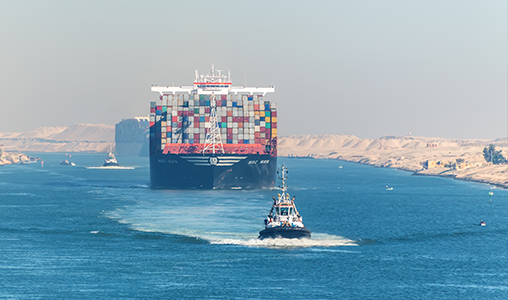The value of Maritime Economy for the development of the Italian economic system
Maritime Economy is one of the sectors that drive the growth of our Italian economic system; the latest data show an added value of over EUR 50Bn and a maritime trade value that reached almost EUR 280Bn. These are the highlights of the latest annual Report of SRM (Research Center related to the Intesa Sanpaolo Group) “Italian Maritime Economy” presented in Naples on 29 September during the international event ‘Naples Shipping Week’, whose analyses and statistics underscored the great strategic value of the Maritime Economy.
Italy counts around 12,600 companies belonging to the maritime transport chain with peaks of excellence in the shipbuilding and shipping sector; Italian ports serve destinations all over the world and each year receive approximately 500 million tonnes of goods of all kinds: containers, petroleum products and chemicals, dry cargo (e.g. wheat and cereals) and the so-called Ro-Ro (Roll on - Roll off, i.e. goods that are commercial vehicles and heavy duty vehicles).
The debate on the competitiveness of the sector, which is part of a wider logistics chain (which also includes air, road and rail freight transport), is now back in the limelight with the two disruptive phenomena that have affected the world economy: the war and the pandemic.

These two events have brought with them the awareness that having quality and efficient cargo handling infrastructure can make a country more resilient to economic shocks; this is even more true if two further drivers are added to the afore-mentioned quality, such as sustainability and digitisation.
Sustainability, understood in its various meanings (Green Port, Green Logistics, Green Shipping) must become a fixture in the strategies of our Italian economic system and not an extemporaneous element, since it is connected to the mechanisms of the National Recovery and Resilience Plan. Indeed, the National Recovery and Resilience Plan includes projects aimed at fostering the development of our maritime and logistics infrastructure to the tune of approximately EUR 15Bn, which are destined to finance resilience projects in ports, Special Economic Zones, intermodal systems, shore-to-ship power to docks, and maritime technologies.
The other concurrent driver is digitisation, understood as any and all measures aimed at cutting out the red tape and dematerialising the numerous documents needed to fulfil the various formalities connected with goods that are unloaded at ports (health, customs, security checks, etc.) and any and all processes that can make goods handling logistics ever faster and more efficient (port automation and emission reduction systems).
We cannot overlook, however, that our maritime system, albeit strong, with high-level and structured operators, is affected by delays compared to the more renowned countries of Northern Europe, which understood ahead of us (long ago) the crucial role played by this sector. These countries went as far also by full inclusion of the sector in university courses and, unsurprisingly, Rotterdam, Hamburg and Antwerp have now world-class facilities and their ports have become logistic hubs across Europe; it seems paradoxical that this has not yet happened in our country, which lies right in the heart of the Mediterranean sea.
The Mediterranean, which accounts for 20% of the world’s freight traffic (over 2 billion tonnes per year) and which sees the Suez Canal as a major hub for ship transits; the Mediterranean, which is also the shore of a continent that is evolving with giant steps in the maritime sector; suffice it to recall the progress made by the Ports of Tangier (Tanger Med) and Port Said (right at the mouth of the Suez Canal), seats of two large free zones attracting business investments from all over the world.
Implementing more effective policies that can further bond the Maritime Economy to our manufacturing industry must become a strategic element to guide our country into the future, not only because the NRRP requires it but also because it is a sector that, according to the most authoritative research, has a very strong multiplication factor; 1 euro invested generates a further 2.6 in the economy and an employee in the sector generates 3.2 in the related supply chain.
It is a sector that is currently called upon to take on major challenges and Italy must be at the forefront to boost its competitive edge.